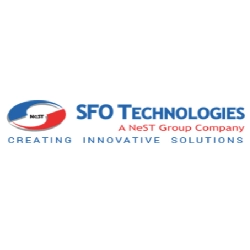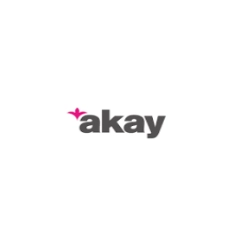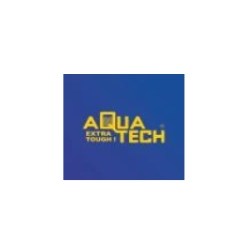Diploma in Electrical & Electronics Engineering
Home » Diploma in Electrical & Electronics Engineering
Diploma in Electrical & Electronics Engineering
Step into the world of innovation at Electrical & Electronics Engineering Department in SCMS College of Polytechnics, where practical skills are our top priority. Our department is equipped with cutting-edge laboratories, designed to bring your learning experience to life. Here, you’ll not only learn the theories but also apply them in real-world scenarios, preparing you for a thriving career in electrical and electronics engineering.
Vision
Mission
The mission of the department is to churn out diploma engineers who will:
Be able to apply their knowledge to identify and solve problems arising in core domain.
Be able to contribute for developmental activities in frontier areas.
Master innovative skills to be entrepreneurs.
Be fruitful to the society by incorporating them for the development of academic-industry collaborations and social outreach programmes.
Vision
Enhance the skills in the field of Electrical & Electronics Engineering by providing quality based education catering to the ever changing industrial demands and societal needs for a self-sustaining nation.
Mission
Program Overview
The Electrical & Electronics Engineering Department of SCMS College of Polytechnics pays special attention to strengthen the student’s practical capabilities. The department boasts of excellently equipped laboratories that fulfill all the areas offered in the program.
The Department pays special attention to strengthening the student’s practical capabilities, a skill we believe is essential for any engineer. Therefore, the department boasts of excellently equipped laboratories that serve all the courses offered in the programs. Moreover, the department has an electronics components store to support student’s project work in various courses and the capstone design project in the Diploma programs.
Our academic team are highly qualified with diverse specializations that include: electric machines, renewable energy systems, power systems and reliability, power quality issues and power electronics.
Electrical Engineering Students Association (EESA)
The association conducts seminars and workshops in PLC, Automation and other latest developments in Electrical Engineering to enhance students’ knowledge.
List of Subjects
- Communication Skills in English
- Mathematics I
- Applied Physics I
- Applied Chemistry
- Engineering Graphics
- Applied Physics Lab
- Applied Chemistry Lab
- Introduction to IT systems Lab
- Engineering Workshop Practice
- Sports and Yoga
- Analog & Digital Circuits
- DC Machines & Traction Motors
- Fundamentals of Electric Circuits
- Electrical & Electronics Measuring Instruments
- Mechanical Engineering
- DC Machines Lab
- Electrical Measurements Lab
- Electrical Workshop Practice
- Mechanical Engineering Lab
- Industrial Management and Safety
- Synchronous Machines & FHP Motors
- Electricity Generation, Transmission & Distribution
- Renewable Energy Power Plant
- Industrial Drives & Control
- Switch Gear & Protection
- Synchronous Machines Lab
- Industrial Electrical Engineering Lab
- Electrical Estimation Lab
- Applied Electronics Lab
- Solar Energy Technology Lab
- Seminar
- Major Project
- Mathematics II
- Applied Physics II
- Environmental Science
- Fundamentals of Electrical & Electronics Engineering
- Elementary Concepts of Electrical Systems
- Communication Skills in English Lab
- Applied Physics Lab
- Fundamentals of Eletrical & Electronics Engineering Lab
- Engineering Graphics using CAD software
- Engineering Workshop Practice
- Power Electronics Devices and Circuits
- Electrical Installation Design & Estimation
- Induction Machines
- Community Skills in Indian knowledge system
- Electronics Lab
- Induction Machines Lab
- Domestic Appliances Repair & Maintenance Workshop
- Professional Practice Lab
- Minor Project
- Entrepreneurship and Startup
- Energy Conservation & Audit (EE)
- Electric Vehicle Technology
- Microcontroller & PLC
- Solar Power Technologies
- Energy Conservation & Management
- Electrification of Residential Buildings
- Electric Vehicles & Traction
- Indian Constitution
- Electrical Computer Aided Drafting Lab
- Industrial Automation Lab
- Applied Electrical Testing Lab
- Modelling and simulation Lab
- Advanced Solar Photovoltaic Lab
- Major Project
The external theory examination of all semesters shall be conducted by the University at the end of each semester. Internal evaluation is to be done by continuous assessment. For all courses without practical total marks of external examination is 80 and total marks of internal evaluation is 20. Marks distribution for external and internal assessments and the components for internal evaluation with their marks are shown below:
For all Courses without Practical
- Marks of external Examination: 80
- Marks of internal evaluation: 20
Components of Internal Evaluation of theory Marks
- Attendance: 5
- Assignment/Seminar/Viva: 5
- Test papers (2×5=10): 10
- Total: 20
For all Courses with Practical
- Marks for external evaluation is 60
- Marks for internal evaluation is 15.
Components of Internal Evaluation Marks
- Attendance: 5
- Assignment/Seminar/Viva: 2
- Test papers (2 x 4): 8
- Total: 15
Components Internal Evaluation of Practical
- Attendance: 2
- Test paper (1 x 4): 4
- Record: 4
- Total: 10
For Projects
- Marks of external evaluation: 80
- Marks of internal evaluation: 20
Assignments are to be done from 1st to 4th semesters. At least one assignment should be done in each semester for all courses.
A student shall present a seminar in the 5th semester for each paper and appear for viva-voce in the 6th semester for each course.
Two test papers are to be conducted in each semester for each course. The evaluations of all components are to be published and are to be acknowledged by the candidates. All documents of internal assessments are to be kept in the college for one year and shall be made available for verification by the University.
Syllabus
Best-in-class content by leading faculty and industry leaders in the form of videos, cases and projects.
It sharpens your expertise in circuit design, power systems analysis, and modern electronic technologies, preparing you to innovate in the evolving electrical landscape.
It is designed for aspirants with a passion for electrical systems, budding innovators eager to delve into circuitry, and those envisioning a career in the dynamic electronics industry.
Affiliations & Accreditations

Government Of Kerala

The International Certification Network.
Faculty
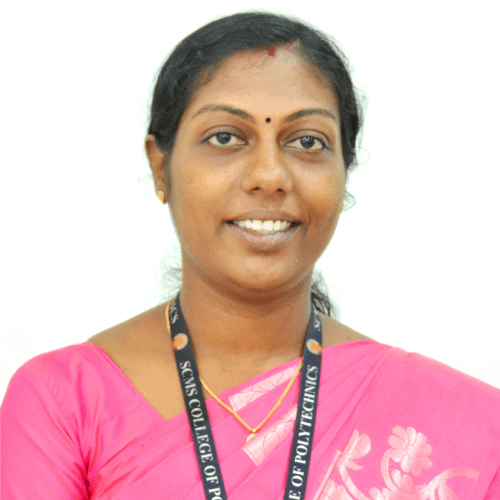
Remya NS
Head of Department
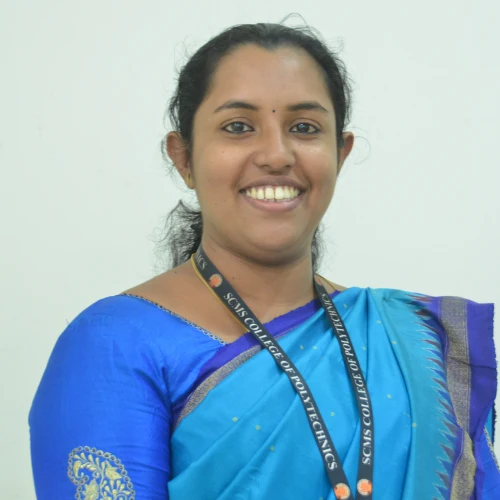
Subil Elizabeth Thomas
Lecturer
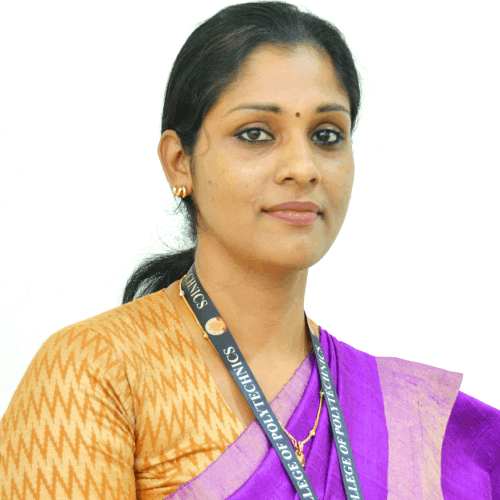
Rehna Sukumar A
Lecturer
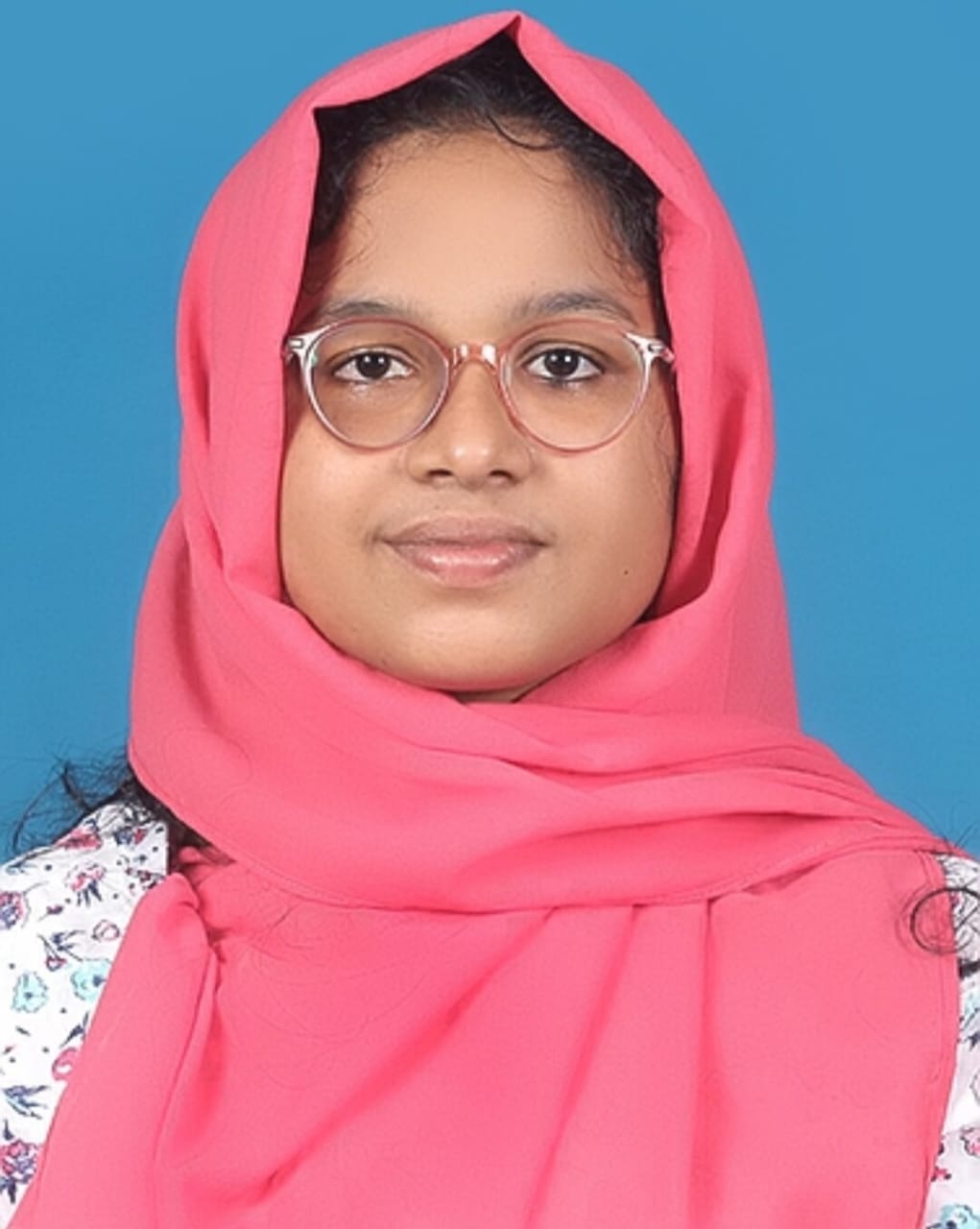
Thasni VM
Lecturer
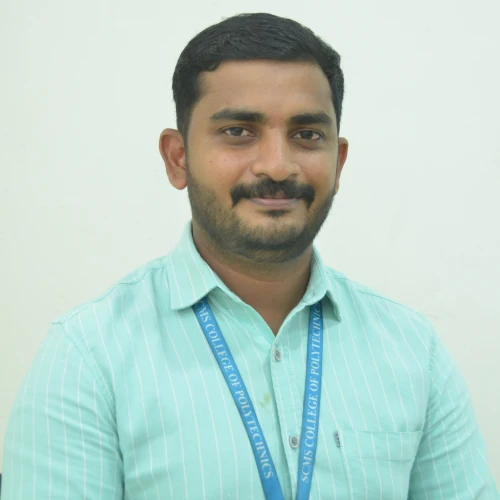
Eldho Kuriakose
Lab Instructor

Remya NS
Head of Department

Subil Elizabeth Thomas
Lecturer

Rehna Sukumar A
Lecturer

Thasni VM
Lecturer

Eldho Kuriakose
Lab Instructor

Remya NS
Head of Department

Subil Elizabeth Thomas
Lecturer

Rehna Sukumar A
Lecturer

Thasni VM
Lecturer

Eldho Kuriakose
Lab Instructor
Objectives and Outcomes
| PEO1 | Apply fundamentals of mathematics, science and engineering to solve the real time problems and inculcate high professionalism by providing technical and soft skills |
| PEO2 | Train the students in diversified and applied areas of computer engineering emphasizing analysis and design to create software solutions that can meet current industrial and societal needs. |
| PEO3 | Attain the ability to adapt quickly to new environments, emerging technologies and working in distinct areas with a strong focus on innovation and entrepreneurship. |
| PEO4 | Develop technicians with solid foundation for real time operation and maintenance of computer hardware and networking. |
| PEO5 | The student will have an inclination towards life- long learning and responsibilities to remain current in their profession to foster personal and organizational growth. |
| PSO1 | Apply the knowledge of computer science skills, modern tools, and mathematical methodologies to analyze, develop, and simulate complex systems. |
| PSO2 | Compile acquired knowledge in computer engineering to take up challenges and manage critical scenarios to create innovative career paths. |
| PSO3 | The ability to develop innovative products in the field of computer engineering to meet the societal needs thereby evolving as an eminent entrepreneur. |
| PO1 | Basic and Discipline specific knowledge: Apply knowledge of basic mathematics, science and engineering fundamentals and engineering specialization to solve the engineering problems. |
| PO2 | Problem analysis: Identify and analyse well-defined engineering problems using codified standard methods. |
| PO3 | Design/development of solutions: Design solutions for well-defined technical problems and assist with the design of systems components or processes to meet specified needs. |
| PO4 | Engineering Tools, Experimentation and Testing: Apply modern engineering tools and appropriate technique to conduct standard tests and measurements. Apply modern engineering tools and appropriate technique to conduct standard tests and measurements. |
| PO5 | Engineering practices for society, sustainability and environment: Apply appropriate technology in context of society, sustainability, environment and ethical practices. |
| PO6 | Project Management: Use engineering management principles individually, as a team member or a leader to manage projects and effectively communicate about well-defined engineering activities. |
| PO7 | Life-long learning: Ability to analyse individual needs and engage in updating in the context of technological change. |
| PEO No. | Type | Description |
| PEO1 | Career Oriented: | Engage in life long learning and career enhancement |
| PEO2 | Enterpreneurship: | Graduate will establish creativity in their technical practices as enterpreneur with stratagic thinking,planning and execution |
| PEO3 | Technical concern for Future: | Enhance the use of Renewable Energy source and Electrical Vehicle Systems |
| PEO4 | Social Ethics & Values: | Demonstrate the overall knowledge and involve in continious learning through state-of-art technologies for the betterment of the society |
| PSO No. | Type | Description |
| PSO1 | Fundamental Knoweledge: | The application of fundamental knowledge to identify, formulate and investigate various real time problems of Electrical and Electronics Systems, Particularly Renewable Energy System |
| PSO2 | Employability: | Graduates will demonstrate and apply modern software tools for design, analysis and erection of Electrical and Electronics Engineering system |
| PSO3 | Social Commitment: | To serve the society, ethically and responsibly with concern to environment through engineering and technology innovations |
| PO No: | Type | Description |
| PO1 | Basic and Discipline specific knowledge: | Apply knowledge of basic mathematics, science and engineering fundamentals and engineering specialization to solve the engineering problems. |
| PO2 | Problem analysis: | Identify and analyse well-defined engineering problems using codified standard methods. |
| PO3 | Design/ development of solutions: | Design solutions for well-defined technical problems and assist with the design of systems components or processes to meet specified needs. |
| PO4 | Engineering Tools, Experimentation and Testing: | Apply modern engineering tools and appropriate technique to conduct standard tests and measurements. |
| PO5 | Engineering practices for society, sustainability and environment: | Apply appropriate technology in context of society, sustainability, environment and ethical practices. |
| PO6 | Project Management: | Use engineering management principles individually, as a team member or a leader to manage projects and effectively communicate about well-defined engineering activities. |
| PO7 | Life-long learning: | Ability to analyse individual needs and engage in updating in the context of technological changes. |
Our Placements
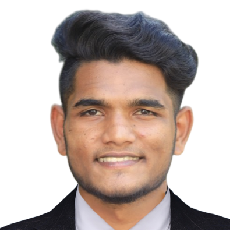
ABIN SHAJU
BATCH : 2021-2024
ELECTRICAL AND ELECTRONICS ENGINEERING

Schneider Electric India
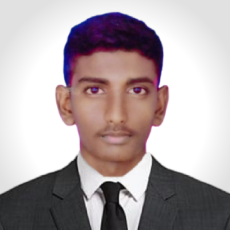
ALBIN BENNY
BATCH : 2021-2024
ELECTRICAL AND ELECTRONICS ENGINEERING

Schneider Electric India
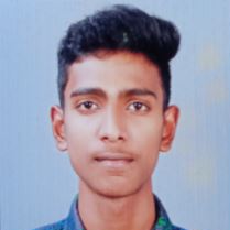
ATHUL PRINCE
BATCH : 2021-2024
ELECTRICAL AND ELECTRONICS ENGINEERING

Schneider Electric India
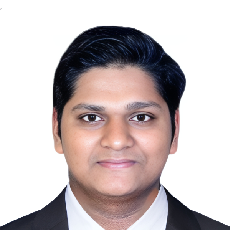
BASIL P PAUL
BATCH : 2021-2024
ELECTRICAL AND ELECTRONICS ENGINEERING

Schneider Electric India
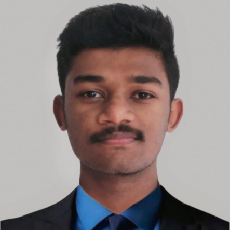
DENIL DAVIS
BATCH : 2021-2024
ELECTRICAL AND ELECTRONICS ENGINEERING

Schneider Electric India
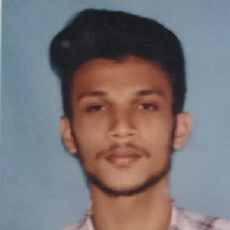
ELBIN ELDHOSE
BATCH : 2021-2024
ELECTRICAL AND ELECTRONICS ENGINEERING

Schneider Electric India
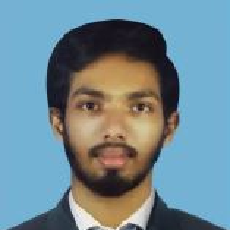
JAIBIN JAMES
BATCH : 2021-2024
ELECTRICAL AND ELECTRONICS ENGINEERING

Schneider Electric India
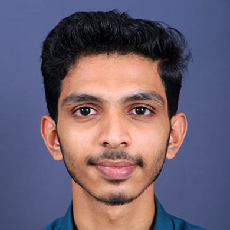
ROHAN S R
BATCH : 2021-2024
ELECTRICAL AND ELECTRONICS ENGINEERING

Schneider Electric India
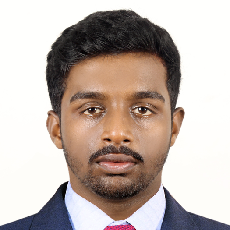
AJAI N V
BATCH : 2021-2024
ELECTRICAL AND ELECTRONICS ENGINEERING

Green Power Solutiion
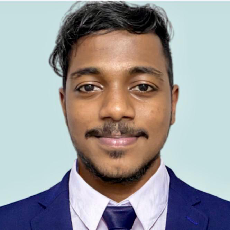
ADHIDHEVE M S
BATCH : 2021-2024
ELECTRICAL AND ELECTRONICS ENGINEERING
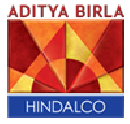
Aditya Birla Group
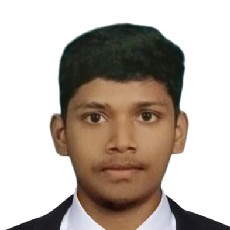
ADARSH C RAJ
BATCH : 2021-2024
ELECTRICAL AND ELECTRONICS ENGINEERING
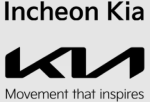
Incheon KIA
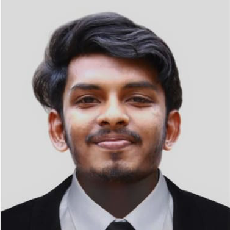
ASWIN V KASIM
BATCH : 2021-2024
ELECTRICAL AND ELECTRONICS ENGINEERING

Incheon KIA
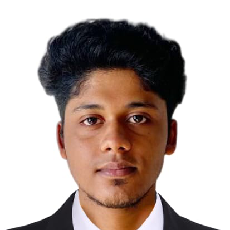
DIYA A R
BATCH : 2021-2024
ELECTRICAL AND ELECTRONICS ENGINEERING

SFO TECHNOLOGIES PRIVATE LIMITED

ELBIN BABY
BATCH : 2018-2021
ELECTRICAL AND ELECTRONICS ENGINEERING

SFO TECHNOLOGIES PRIVATE LIMITED

GAUTHAM C A
BATCH : 2018-2021
ELECTRICAL AND ELECTRONICS ENGINEERING

SFO TECHNOLOGIES PRIVATE LIMITED

HARIKRISHNAN M R
BATCH : 2018-2021
ELECTRICAL AND ELECTRONICS ENGINEERING

SFO TECHNOLOGIES PRIVATE LIMITED

VINAYAK R
BATCH : 2018-2021
ELECTRICAL AND ELECTRONICS ENGINEERING

SFO TECHNOLOGIES PRIVATE LIMITED

HARI A C
BATCH : 2018-2021
ELECTRICAL AND ELECTRONICS ENGINEERING

SFO TECHNOLOGIES PRIVATE LIMITED

GAUTAM M VINOD
BATCH : 2018-2021
ELECTRICAL AND ELECTRONICS ENGINEERING

SFO TECHNOLOGIES PRIVATE LIMITED

MANU K M
BATCH : 2018-2021
ELECTRICAL AND ELECTRONICS ENGINEERING

SARANGA GEOSOFTWARE AND ENGINEERING SERVICES PVT LTD

KRISHNARAJ RAJEEV K
BATCH : 2018-2021
ELECTRICAL AND ELECTRONICS ENGINEERING

SARANGA GEOSOFTWARE AND ENGINEERING SERVICES PVT LTD

ROY ALEXANDER K Y
BATCH : 2018-2021
ELECTRICAL AND ELECTRONICS ENGINEERING

SARANGA GEOSOFTWARE AND ENGINEERING SERVICES PVT LTD

BASIL JOHN
BATCH : 2018-2021
ELECTRICAL AND ELECTRONICS ENGINEERING

SARANGA GEOSOFTWARE AND ENGINEERING SERVICES PVT LTD

AKSHAY SUBRAMANYIAN
BATCH : 2019-2022
ELECTRICAL AND ELECTRONICS ENGINEERING

AKAY NATURAL INGREDIENTS PVT LTD Mudakkuzha,Perumbavoor

SHIFAN K F
BATCH : 2019-2022
ELECTRICAL AND ELECTRONICS ENGINEERING

SFO Technologies ,Cochin Special Economic Zone,Kakkanad

ALTHAF V A
BATCH : 2019-2022
ELECTRICAL AND ELECTRONICS ENGINEERING

SFO Technologies ,Cochin Special Economic Zone,Kakkanad

JOYAL M PAUL
BATCH : 2019-2022
ELECTRICAL AND ELECTRONICS ENGINEERING

SFO Technologies ,Cochin Special Economic Zone,Kakkanad

MUHAMMED IRFAN
BATCH : 2019-2022
ELECTRICAL AND ELECTRONICS ENGINEERING

SFO Technologies ,Cochin Special Economic Zone,Kakkanad

BASIL JOSE
BATCH : 2019-2022
ELECTRICAL AND ELECTRONICS ENGINEERING

SFO Technologies ,Cochin Special Economic Zone,Kakkanad

T S MUHAMMED HUSAIN
BATCH : 2019-2022
ELECTRICAL AND ELECTRONICS ENGINEERING

SFO Technologies ,Cochin Special Economic Zone,Kakkanad

ARJUN NANDAKUMAR
BATCH : 2019-2022
ELECTRICAL AND ELECTRONICS ENGINEERING

SFO Technologies ,Cochin Special Economic Zone,Kakkanad

FIROZ E A
BATCH : 2019-2022
ELECTRICAL AND ELECTRONICS ENGINEERING

SFO Technologies, Cochin Special Economic Zone, Kakkanad

ABIN SHAJU
BATCH : 2021-2024
ELECTRICAL AND ELECTRONICS ENGINEERING

Schneider Electric India

ALBIN BENNY
BATCH : 2021-2024
ELECTRICAL AND ELECTRONICS ENGINEERING

Schneider Electric India

ATHUL PRINCE
BATCH : 2021-2024
ELECTRICAL AND ELECTRONICS ENGINEERING

Schneider Electric India

BASIL P PAUL
BATCH : 2021-2024
ELECTRICAL AND ELECTRONICS ENGINEERING

Schneider Electric India

DENIL DAVIS
BATCH : 2021-2024
ELECTRICAL AND ELECTRONICS ENGINEERING

Schneider Electric India

ELBIN ELDHOSE
BATCH : 2021-2024
ELECTRICAL AND ELECTRONICS ENGINEERING

Schneider Electric India

JAIBIN JAMES
BATCH : 2021-2024
ELECTRICAL AND ELECTRONICS ENGINEERING

Schneider Electric India

ROHAN S R
BATCH : 2021-2024
ELECTRICAL AND ELECTRONICS ENGINEERING

Schneider Electric India

AJAI N V
BATCH : 2021-2024
ELECTRICAL AND ELECTRONICS ENGINEERING

Green Power Solutiion

ADHIDHEVE M S
BATCH : 2021-2024
ELECTRICAL AND ELECTRONICS ENGINEERING

Aditya Birla Group

ADARSH C RAJ
BATCH : 2021-2024
ELECTRICAL AND ELECTRONICS ENGINEERING

Incheon KIA

ASWIN V KASIM
BATCH : 2021-2024
ELECTRICAL AND ELECTRONICS ENGINEERING

Incheon KIA

DIYA A R
BATCH : 2021-2024
ELECTRICAL AND ELECTRONICS ENGINEERING

SFO TECHNOLOGIES PRIVATE LIMITED

ELBIN BABY
BATCH : 2018-2021
ELECTRICAL AND ELECTRONICS ENGINEERING

SFO TECHNOLOGIES PRIVATE LIMITED

GAUTHAM C A
BATCH : 2018-2021
ELECTRICAL AND ELECTRONICS ENGINEERING

SFO TECHNOLOGIES PRIVATE LIMITED

HARIKRISHNAN M R
BATCH : 2018-2021
ELECTRICAL AND ELECTRONICS ENGINEERING

SFO TECHNOLOGIES PRIVATE LIMITED

VINAYAK R
BATCH : 2018-2021
ELECTRICAL AND ELECTRONICS ENGINEERING

SFO TECHNOLOGIES PRIVATE LIMITED

HARI A C
BATCH : 2018-2021
ELECTRICAL AND ELECTRONICS ENGINEERING

SFO TECHNOLOGIES PRIVATE LIMITED

GAUTAM M VINOD
BATCH : 2018-2021
ELECTRICAL AND ELECTRONICS ENGINEERING

SFO TECHNOLOGIES PRIVATE LIMITED

MANU K M
BATCH : 2018-2021
ELECTRICAL AND ELECTRONICS ENGINEERING

SARANGA GEOSOFTWARE AND ENGINEERING SERVICES PVT LTD

KRISHNARAJ RAJEEV K
BATCH : 2018-2021
ELECTRICAL AND ELECTRONICS ENGINEERING

SARANGA GEOSOFTWARE AND ENGINEERING SERVICES PVT LTD

ROY ALEXANDER K Y
BATCH : 2018-2021
ELECTRICAL AND ELECTRONICS ENGINEERING

SARANGA GEOSOFTWARE AND ENGINEERING SERVICES PVT LTD

BASIL JOHN
BATCH : 2018-2021
ELECTRICAL AND ELECTRONICS ENGINEERING

SARANGA GEOSOFTWARE AND ENGINEERING SERVICES PVT LTD

AKSHAY SUBRAMANYIAN
BATCH : 2019-2022
ELECTRICAL AND ELECTRONICS ENGINEERING

AKAY NATURAL INGREDIENTS PVT LTD Mudakkuzha,Perumbavoor

SHIFAN K F
BATCH : 2019-2022
ELECTRICAL AND ELECTRONICS ENGINEERING

SFO Technologies ,Cochin Special Economic Zone,Kakkanad

ALTHAF V A
BATCH : 2019-2022
ELECTRICAL AND ELECTRONICS ENGINEERING

SFO Technologies ,Cochin Special Economic Zone,Kakkanad

JOYAL M PAUL
BATCH : 2019-2022
ELECTRICAL AND ELECTRONICS ENGINEERING

SFO Technologies ,Cochin Special Economic Zone,Kakkanad

MUHAMMED IRFAN
BATCH : 2019-2022
ELECTRICAL AND ELECTRONICS ENGINEERING

SFO Technologies ,Cochin Special Economic Zone,Kakkanad

BASIL JOSE
BATCH : 2019-2022
ELECTRICAL AND ELECTRONICS ENGINEERING

SFO Technologies ,Cochin Special Economic Zone,Kakkanad

T S MUHAMMED HUSAIN
BATCH : 2019-2022
ELECTRICAL AND ELECTRONICS ENGINEERING

SFO Technologies ,Cochin Special Economic Zone,Kakkanad

ARJUN NANDAKUMAR
BATCH : 2019-2022
ELECTRICAL AND ELECTRONICS ENGINEERING

SFO Technologies ,Cochin Special Economic Zone,Kakkanad

FIROZ E A
BATCH : 2019-2022
ELECTRICAL AND ELECTRONICS ENGINEERING

SFO Technologies, Cochin Special Economic Zone, Kakkanad

ABIN SHAJU
BATCH : 2021-2024
ELECTRICAL AND ELECTRONICS ENGINEERING

Schneider Electric India

ALBIN BENNY
BATCH : 2021-2024
ELECTRICAL AND ELECTRONICS ENGINEERING

Schneider Electric India

ATHUL PRINCE
BATCH : 2021-2024
ELECTRICAL AND ELECTRONICS ENGINEERING

Schneider Electric India

BASIL P PAUL
BATCH : 2021-2024
ELECTRICAL AND ELECTRONICS ENGINEERING

Schneider Electric India

DENIL DAVIS
BATCH : 2021-2024
ELECTRICAL AND ELECTRONICS ENGINEERING

Schneider Electric India

ELBIN ELDHOSE
BATCH : 2021-2024
ELECTRICAL AND ELECTRONICS ENGINEERING

Schneider Electric India

JAIBIN JAMES
BATCH : 2021-2024
ELECTRICAL AND ELECTRONICS ENGINEERING

Schneider Electric India

ROHAN S R
BATCH : 2021-2024
ELECTRICAL AND ELECTRONICS ENGINEERING

Schneider Electric India

AJAI N V
BATCH : 2021-2024
ELECTRICAL AND ELECTRONICS ENGINEERING

Green Power Solutiion

ADHIDHEVE M S
BATCH : 2021-2024
ELECTRICAL AND ELECTRONICS ENGINEERING

Aditya Birla Group

ADARSH C RAJ
BATCH : 2021-2024
ELECTRICAL AND ELECTRONICS ENGINEERING

Incheon KIA

ASWIN V KASIM
BATCH : 2021-2024
ELECTRICAL AND ELECTRONICS ENGINEERING

Incheon KIA

DIYA A R
BATCH : 2021-2024
ELECTRICAL AND ELECTRONICS ENGINEERING

SFO TECHNOLOGIES PRIVATE LIMITED

ELBIN BABY
BATCH : 2018-2021
ELECTRICAL AND ELECTRONICS ENGINEERING

SFO TECHNOLOGIES PRIVATE LIMITED

GAUTHAM C A
BATCH : 2018-2021
ELECTRICAL AND ELECTRONICS ENGINEERING

SFO TECHNOLOGIES PRIVATE LIMITED

HARIKRISHNAN M R
BATCH : 2018-2021
ELECTRICAL AND ELECTRONICS ENGINEERING

SFO TECHNOLOGIES PRIVATE LIMITED

VINAYAK R
BATCH : 2018-2021
ELECTRICAL AND ELECTRONICS ENGINEERING

SFO TECHNOLOGIES PRIVATE LIMITED

HARI A C
BATCH : 2018-2021
ELECTRICAL AND ELECTRONICS ENGINEERING

SFO TECHNOLOGIES PRIVATE LIMITED

GAUTAM M VINOD
BATCH : 2018-2021
ELECTRICAL AND ELECTRONICS ENGINEERING

SFO TECHNOLOGIES PRIVATE LIMITED

MANU K M
BATCH : 2018-2021
ELECTRICAL AND ELECTRONICS ENGINEERING

SARANGA GEOSOFTWARE AND ENGINEERING SERVICES PVT LTD

KRISHNARAJ RAJEEV K
BATCH : 2018-2021
ELECTRICAL AND ELECTRONICS ENGINEERING

SARANGA GEOSOFTWARE AND ENGINEERING SERVICES PVT LTD

ROY ALEXANDER K Y
BATCH : 2018-2021
ELECTRICAL AND ELECTRONICS ENGINEERING

SARANGA GEOSOFTWARE AND ENGINEERING SERVICES PVT LTD

BASIL JOHN
BATCH : 2018-2021
ELECTRICAL AND ELECTRONICS ENGINEERING

SARANGA GEOSOFTWARE AND ENGINEERING SERVICES PVT LTD

AKSHAY SUBRAMANYIAN
BATCH : 2019-2022
ELECTRICAL AND ELECTRONICS ENGINEERING

AKAY NATURAL INGREDIENTS PVT LTD Mudakkuzha,Perumbavoor

SHIFAN K F
BATCH : 2019-2022
ELECTRICAL AND ELECTRONICS ENGINEERING

SFO Technologies ,Cochin Special Economic Zone,Kakkanad

ALTHAF V A
BATCH : 2019-2022
ELECTRICAL AND ELECTRONICS ENGINEERING

SFO Technologies ,Cochin Special Economic Zone,Kakkanad

JOYAL M PAUL
BATCH : 2019-2022
ELECTRICAL AND ELECTRONICS ENGINEERING

SFO Technologies ,Cochin Special Economic Zone,Kakkanad

MUHAMMED IRFAN
BATCH : 2019-2022
ELECTRICAL AND ELECTRONICS ENGINEERING

SFO Technologies ,Cochin Special Economic Zone,Kakkanad

BASIL JOSE
BATCH : 2019-2022
ELECTRICAL AND ELECTRONICS ENGINEERING

SFO Technologies ,Cochin Special Economic Zone,Kakkanad

T S MUHAMMED HUSAIN
BATCH : 2019-2022
ELECTRICAL AND ELECTRONICS ENGINEERING

SFO Technologies ,Cochin Special Economic Zone,Kakkanad

ARJUN NANDAKUMAR
BATCH : 2019-2022
ELECTRICAL AND ELECTRONICS ENGINEERING

SFO Technologies ,Cochin Special Economic Zone,Kakkanad

FIROZ E A
BATCH : 2019-2022
ELECTRICAL AND ELECTRONICS ENGINEERING

SFO Technologies, Cochin Special Economic Zone, Kakkanad
Admissions
Eligibility
- The candidate shall be a citizen of India.
- The candidate shall have passed SSLC/THSLC or equivalent examination, with eligibility for higher studies.
- Candidates who have passed qualifying examination with Mathematics, English and
- A candidate who has taken more than two chances to secure eligibility for higher studies in SSLC/THSLC or equivalent examinations is not eligible for admission
- For CBSE/ICSE/Open school candidates the Marks/Grades obtained in Science is considered for calculating grade in the place of Physics and Chemistry. CBSE school candidates who have passed qualifying examination with Mathematics- Standard are only eligible to apply .
- In the case of CBSE candidates, only the certificates of Board examination shall be accepted as qualifying certificate and such candidates shall submit an undertaking. This undertaking need only be submitted by candidates who have passed CBSE Xth during the period 2010-2018
*Please refer the prospectus issued by SBTE Kerala
Two-year Lateral Entry Diploma
The candidate should satisfy all eligibility requirements mentioned in the DTE prospectus.
Minimum Eligibility: +2/VHSE candidates: Minimum score of 50% in Mathematics, Physics and other relevant mandatory subjects put together. In the case of VHSE, candidate should have separate pass in Physics, Mathematics or additional mathematics and other relevant subjects.
NCVT/SCVT/KGCE candidates: Pass with 50% aggregate marks in 2 year metric courses of NCVT/SCVT/ KGCE.Candidates will be considered for admission to any branch of Engineering and Technology.
How to Apply?
You may apply online by filling the application from the website.
Application fee of Rs.200/- also to be paid online. The application has to be accompanied with the following
documents:
- True copies (Self attested) of Mark Sheet of SSLC/HSE/CBSE/ICSE/ITI or equivalent examination.
- The original certificates should be presented to the Principal at the time of admission. They will be returned to the students only after verifications. Students are requested to keep sufficient number of attested copies of certificates for their use till such time.
Ready to Engineer Your Future?
Begin Your Journey with Us
Facilities
Activities
LIFE at
SCMS

Admissions
Eligibility
THREE-YEAR DIPLOMA
- The candidate should satisfy all eligibility requirements mentioned in the DTE prospectus for the academic year 2022-23.
- The candidate should have passed SSLC/THSLC or equivalent examination, with eligibility for higher studies.
- Candidates who have passed qualifying examination with Mathematics, Physics, Chemistry and English subjects are eligible to apply.
- For CBSE/ICSE candidates, the Marks/Grades obtained in Science is considered for calculating grade in Science, in the place of Physics and Chemistry. In the case of CBSE candidates, Mathematics should be “Standard Mathematics” and only the certificates of Board Examination shall be accepted as qualifying certificate and such candidates shall submit an Undertaking at the time of admission and a copy of the same shall be submitted along with the Application.
TWO-YEAR LATERAL ENTRY DIPLOMA
The candidate should satisfy all eligibility requirements mentioned in the DTE prospectus for the academic year 2022-23.
Minimum Eligibility: +2/VHSE candidates: Minimum score of 50% in Mathematics, Physics and other relevant mandatory subjects put together. In the case of VHSE, candidate should have separate pass in Physics, Mathematics or additional mathematics and other relevant subjects. NCVT/SCVT/KGCE candidates: Pass with 50% aggregate marks in 2 year metric courses of NCVT/SCVT/KGCE. Candidates will be considered for admission to any branch of Engineering and Technology. The candidate should satisfy all eligibility requirements mentioned in the DTE prospectus for the academic year 2022-23.
The candidate should have passed SSLC/THSLC or equivalent examination, with eligibility for higher studies.
Candidates who have passed qualifying examination with Mathematics, Physics, Chemistry and English subjects are eligible to apply.
For CBSE/ICSE candidates, the Marks/Grades obtained in Science is considered for calculating grade in Science, in the place of Physics and Chemistry. In the case of CBSE candidates, Mathematics should be “Standard Mathematics” and only the certificates of Board Examination shall be accepted as qualifying certificate and such candidates shall submit an Undertaking at the time of admission and a copy of the same shall be submitted along with the Application.
How to Apply?
You may apply online by filling the application from the website.
Application fee of Rs.200/- is to be paid online. Students
are also required to apply in Govt. site
www.polyadmission.org for regular admission and
let for lateral entry admission.
The application has to be
accompanied with the following documents:
True copies (Self attested) of Mark Sheet of SSLC/HSE/CBSE/ICSE/ITI or equivalent examination.
The original certificates should be presented to the Principal at the time of admission. It will be returned to the students only after verifications. Students are requested to keep sufficient number of attested copies of certificates for their use till such time.
Why Study at SCMS?
SCMS is led by a dedicated team of leaders who provide guidance, support, and drive the institute’s mission of academic excellence and research-driven education.
Alongside the core curriculum, SCMS emphasizes the development of managerial and technological skills, equipping you with a well-rounded education that prepares you for the challenges of the professional world.
SCMS boasts a committed faculty team comprising experienced professors, researchers, and industry experts who provide quality education, mentorship, and guidance throughout your academic journey.
SCMS maintains a disciplined environment that fosters a strong focus on academic pursuits, creating an atmosphere conducive to learning, research, and personal growth.
Interaction of faculty, parents and students arranged each semester to assess the learning difficulties of individual students, if any, and to chalk out remedial programmes to improve their performance.
SCMS offers a valuable educational experience with its well-designed curriculum, research opportunities, industry collaborations, and career support services, ensuring that your investment in education yields long-term benefits for your future.
SCMS provides modern laboratories, advanced equipment, and research facilities, ensuring you have access to cutting-edge resources for hands-on learning and research.
Our Alumni's Career Footprints
